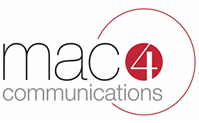My family knows that when given the choice between driving or riding “shotgun” on an outing or trip in the car, I’ll choose the passenger seat every time. It’s not that I’m incapable of driving or daunted by it, I just prefer not to. My husband, on the other hand, actually enjoys being behind the wheel, so we’re a match made in heaven when it comes to car trips. From the front passenger seat, I navigate the best route, take phone calls, referee our children in the back seats, read my husband’s texts and e-mails, manage food and beverages, anticipate when new directions or rest stops will be needed, and find the closest Starbucks. With me actively multitasking in the passenger seat, my husband can stay focused on one thing: safely getting us to our destination.
If you’re running a communications department, having a consultant by your side can be effective in the same way a passenger-seat companion can support a driver. A consultant can help you navigate the communications landscape, provide new alternatives to communications challenges and tend to side projects so that you can stay focused on your main objective. But finding the right consultant to come along for the ride can be challenging. There are a lot of communications practitioners out there, many of whom are very competent and would love to have your business. So how will you know when you’ve met your match?
At a bare minimum, you should look for someone who is proven, who has experience in the areas where you need help, and the references to back it up. You’ll also want to carefully assess the consultant’s or firm’s technical skills and capabilities, from writing and editing to creative direction and multimedia production, to determine whether they can meet your needs. Finally, you’ll want to consider your gut feel: Would you actually enjoy working with the person or firm in question? Could you trust them to get the job done?
Aside from these basic requirements, maybe you don’t know exactly what you’re looking for in a communications consultant, but you’ll know it when you see it. Look for a partner who:
- Asks questions and really listens to your answers. The best consultant is much more than an order-taker. He or she wants to learn about your business and understand your communications context and needs, not just rush in to provide a solution.
- Brings ideas to the table. A good communications partner can recommend creative solutions and options you might not have considered that are outside of your realm of experience or way of thinking. Your consultant should be able to advise you based on best practices or strategies he or she has seen or implemented in other situations similar to yours.
- Is proactive without being pushy. An effective partner doesn’t wait for his or her phone to ring, but instead stays in touch with you and proactively offers support, without seeming overbearing or overstepping boundaries.
- Treats you as a partner. You want someone who will collaborate with you. Of course, as the client you are the driver’s seat, but you want a partner ensconced in the passenger seat actively helping you navigate the road ahead—not sitting mutely in the backseat while you take a wrong turn or miss an opportunity.
If the consultant or firm you’re considering checks all of these boxes, you might just have found your communications partner for the long haul.
Author: Kate Tomasco

